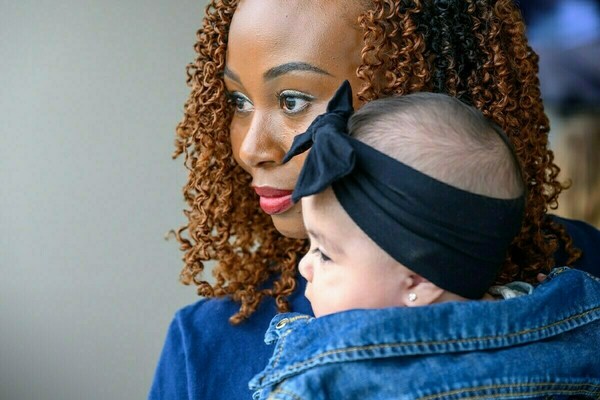Notre Dame elected to Universities Space Research Association to advance space exploration research
The University of Notre Dame has been inducted into the Universities Space Research Association (USRA). Founded in 1969 under the auspices of the National Academy of Sciences at the request of the U.S. Government, the USRA is a nonprofit corporation chartered to advance space-related science, technology, and engineering. The USRA consists of 120 universities that work together to advance space-related education, research, development, and operations around the world.
To be eligible for USRA membership, a university must demonstrate "significant contributions in space- or aeronautics-related research by faculty and a substantial commitment to a course of studies and dissertation research leading to the doctorate in one or more related fields."
The USRA cited Notre Dame's "active research programs in Physics, Astronomy, Aerospace and Mechanical Engineering, and Earth Sciences." It also noted that research at the University "is built around a robust framework of strong interdisciplinary and collaborative activities both within in-house departments and with other renowned national and international institutes."
Clive Neal, a professor in the Department of Civil and Environmental Engineering and Earth Sciences (CEEES), called the University’s USRA membership “an important recognition of Notre Dame’s deep involvement in space activities.”
Neal, who has been conducting lunar research at Notre Dame for over 30 years, explained that Notre Dame’s involvement with USRA will bring benefits for researchers interested in conducting research in space as well as for those who are interested in helping to advance space exploration.
“Utilizing the space environment to conduct experiments has been revolutionary,” Neal said, “It has led to new materials and new pharmaceuticals. And now, as we understand and document useful resources on different planetary bodies, it is crucial that we understand how to utilize those resources in a very different environment from what we are used to on this planet.”
The University’s recent space-related research includes an effort by Neal’s lab to perform the first-ever analysis of samples collected in 1972 from the surface of the Moon in vacuum tubes by Apollo 17 astronauts.
Additionally, Tengfei Luo, the Dorini Family Professor for Energy Studies, used the microgravity environment aboard the International Space Station (ISS) to gain a better understanding of the competing physical forces involved in the dynamics of bubbles. In another experiment aboard the ISS, Meenal Datta, an assistant professor in the Department of Aerospace and Mechanical Engineering, explored how the microgravity environment affects the development of organoids that could lead to more efficient and effective models for cancer research.
Jeffrey F. Rhoads, vice president for research and professor in the Department of Aerospace and Mechanical Engineering, said, "Space is an exciting new frontier for making research breakthroughs not possible on Earth. We are grateful to the USRA for recognizing the distinctive contribution Notre Dame can make to these efforts.”
Rhoads added, “It is particularly inspiring to see the ways Notre Dame researchers are looking to space to advance human health on Earth—whether by improving disease detection, creating more realistic disease models, or by developing new and better therapeutics in space.”
To learn more about the USRA, visit www.usra.edu.
Contact: Brett Beasley / Writer and Editorial Program Manager
Notre Dame Research / University of Notre Dame
bbeasle1@nd.edu / +1 574-631-8183
research.nd.edu / @UNDResearch
About Notre Dame Research
The University of Notre Dame is a private research and teaching university inspired by its Catholic mission. Located in South Bend, Indiana, its researchers are advancing human understanding through research, scholarship, education, and creative endeavor in order to be a repository for knowledge and a powerful means for doing good in the world. For more information, please see research.nd.edu or @UNDResearch.
Latest Research
- Fighting for maternal healthThe United States has the highest maternal mortality rate of developed nations. An innovative postpartum care model from Notre Dame can save mothers around the globe. Read the story Originally…
- NSF Cyber SMART’s fall meeting shapes fifth year of project, legacy and future plans, and adds new memberThe U.S. National Science Foundation (NSF) Cyber SMART center gathered for its fall meeting on the University of Notre Dame campus this September. The meeting served as a checkpoint with progress reports and new projects from research leads and students…
- Slavic and Eurasian studies professor wins Humboldt fellowship to research how Russia’s religious past shapes its presentWhen Russia invaded Ukraine on Feb. 24, 2022, Sean Griffin realized his second book needed a new title. Griffin, an associate professor in the University of Notre Dame’s Department of…
- Notre Dame’s R.I.S.E. AI Conference builds interdisciplinary collaboration to inform human-centered artificial intelligenceAs artificial intelligence (AI) transforms nearly every sector of society — from healthcare and education to governance and global development — a critical question emerges: How can we conscientiously design and deploy these powerful technologies to positively impact society? This…
- University of Notre Dame joins the Global Coalition of Ukrainian StudiesThe University of Notre Dame has joined the Global Coalition of Ukrainian Studies after signing a Memorandum of Cooperation (MOC), formalized on September 24, 2025, at the Ukrainian Institute of America in New York City. Notre Dame joined four other American…
- The University of Notre Dame’s Mendoza College of Business and Industry Labs team up to inspire national security manufacturing competitiveness in the regionThe South Bend - Elkhart Region is full of manufacturing companies that are poised to grow, and Executive Master of Business Administration (EMBA) and Master of Business Administration (MBA) students at the University of Notre Dame are finding innovative ways to contribute to that growth. Earlier…













